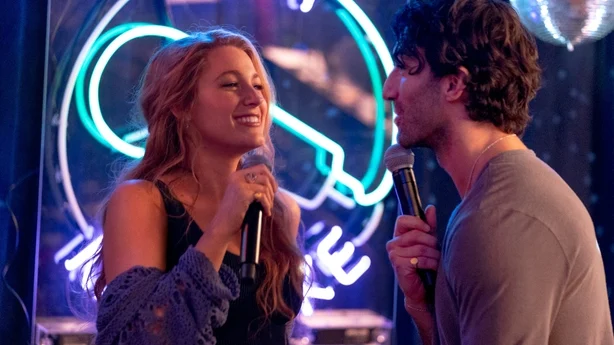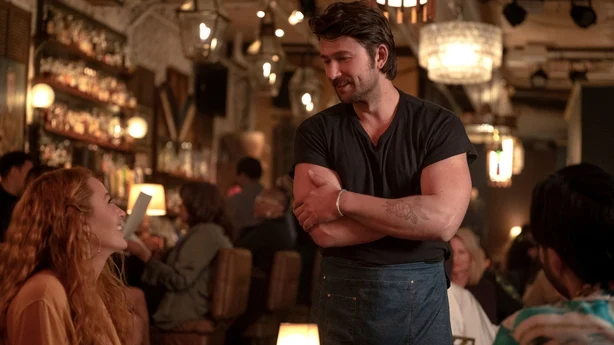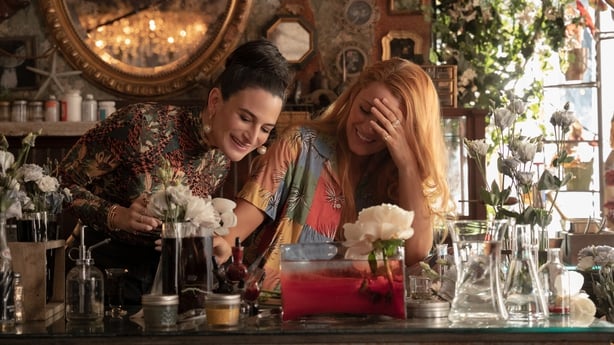Granted, Trainspotting author Irvine Welsh is not the first person you expect to see in the same sentence as It Ends with Us writer Colleen Hoover, but wisdom from the Scotsman is relevant to this adaptation of Hoover's bestseller - and, indeed, any much-loved novel that makes the jump to the big screen.
In an Empire interview many years ago, Welsh said that an author can't lose if their book is made into a film. If the film is good, their book gets the credit. If the film is bad, their book will not become part of the fallout.

The film of It Ends with Us gets some calls right and one big thing wrong. Ultimately, the drama is neither as strong nor satisfying as it is in the book.
For new arrivals, this love triangle involves hero Lily Bloom (Blake Lively) and the two men in her life: Ryle Kincaid (Justin Baldoni), an egotistical neurosurgeon she has fallen for in the present; and Atlas Corrigan (Brandon Sklenar), Lily's straight-arrow first love.

Casting-wise, It Ends with Us is a success. Lively is the perfect fit for Lily. In the future, it will be difficult to think of the book character without seeing the Gossip Girl star - she's even on the cover of the new edition tie-in. Baldoni, who is double-jobbing as director, embodies the too-cool-for-school allure of Ryle Kincaid. Star-in-the-making Brandon Sklenar, who you may recognise from Yellowstone spin-off 1923, is a solid-but-somewhat-underused Atlas. The younger versions of Lily and Atlas look a bit too old to be at school - echoes of Normal People there - but Isabela Ferrer and Alex Neustaedter are good in the roles. And a special mention to Jenny Slate for making supporting stalwart Allyssa her own. Slate is excellent in a crucial scene, proving once again that if you can do comedy, you can do anything heavy.
On the page, Hoover carries the reader along in a spirit of best-life gushiness for much of the first half of the book, wrong-footing them for what's to come in the emotionally draining second. The film follows the same blueprint, but after things reach 'movie crossroads', it all becomes a bit too rushed - and that's the disappointment here. Although the biggest moments are present and well-acted, they play like 'next, next, next' instead of an engrossing final act. Inexplicably, one of the best pieces of dialogue from the book, the advice Lily receives from her mother about limits, has been discarded. Surely one song-soaked montage could have been ditched to make room for it? If a last-weekend newcomer to the book is saying that, what are long-time fans going to think?

They will, of course, be in the cinemas to think it. One thing that's not up for debate is that It Ends with Us will be a box office winner. Made for $25 million, it will make that a number of times over, enjoying the same reader-turned-viewer momentum as last year's adaptation of Delia Owens's Where the Crawdads Sing - but on a bigger scale. That points to Hoover's sequel, It Starts with Us, also heading to Hollywood. In a story that's ultimately about the gift of hope renewed, let's hope the follow-up proves more rewarding.
Disclaimer: The copyright of this article belongs to the original author. Reposting this article is solely for the purpose of information dissemination and does not constitute any investment advice. If there is any infringement, please contact us immediately. We will make corrections or deletions as necessary. Thank you.






